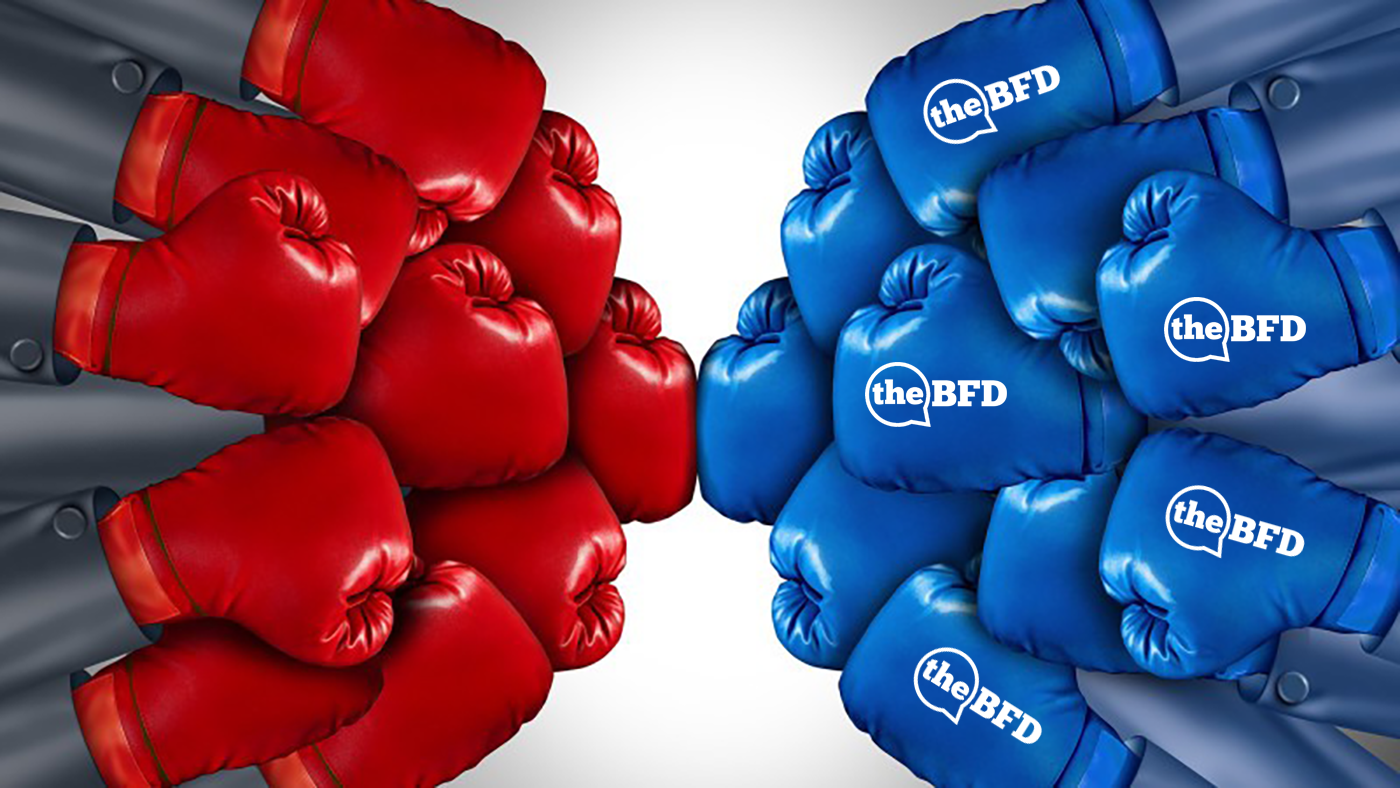The latest trust in media survey results are out and, for the fourth straight year, trust in media has declined. The usual suspects, almost all state funded, are clutching at their necklaces and tut-tutting about the state of media all without even pausing to understand why it is happening.
Every year international communications company Edelman creates a ‘trust barometer’ from surveys about institutions, governments and companies in 27 countries.
In almost all of them, it recorded annual declines of trust in all sources of general news and information.
It was the same again this year.
“A shared media environment has given way to echo chambers, making it harder to collaboratively solve problems. Media is not trusted, with especially low trust in social media,” the report found.
“To a large extent in New Zealand we have kept (trust) but you can feel it fraying. You can feel the influences of polarisation, for example, out of the US which plays in everybody’s media – and that’s putting news pressure on as well,” former PM Helen Clark said at the launch of the 2023 Trust Barometer in January.
New Zealand isn’t among the countries Edelman surveys, but a survey by a local affiliate last year found trust in media here at just 41 percent, well below Edelman’s global average of 50.
Perhaps worse, a majority considered media here to be “a divisive force” in society.
But the actual report actually told a different story about news.
The fine print said the question about divisiveness was only put to half of the sample, trust in all media was up and 58 percent chose ‘traditional news media’ as a trusted source – a greater proportion than in the US, Japan or Australia.
Media have become mouthpieces of the state in many countries. Their parroting of government policies during Covid, and their divisive behaviour in attacking anyone who dared counter the prevailing narrative destroyed any trust we ever had in them.
It is no different in New Zealand:
Since 2020, the most comprehensive annual survey of New Zealanders’ trust in news has been carried out by the AUT ‘s Centre for Journalism Media and Democracy.
It uses Horizon Research for the data gathering and a survey of 46 other countries by international news agency Reuters.
Four years ago, more than half of respondents said they trusted most of the news most of the time – and almost two thirds trusted the news they personally chose. Also, New Zealanders were more skeptical than those in many other countries about news on social media and through online search engines.
Since then, New Zealand has had lockdowns, anti-government and anti-Covid control protests and exposure to more misinformation online.
And most of that misinformation came directly from the government and its podium of ‘truth’, echoed and parroted by a complicit and corrupted media propped up with state funding.
On top of that, many claims have been made about our media being corrupted or compromised – or both – by increased government funding and support. Individual journalists and outlets have also been targeted by trolls and critics.
When you take the bribes, and cede editorial control so you can bank the cash, then, yes, you’ve been corrupted.
Last year’s JMAD survey found only 45 percent of us were prepared to say they trusted the news media.
In this year’s survey, that has fallen again to just 42 percent – 11 percent less than in 2020.
Only 53 percent said they trusted the news they choose in 2023. That’s a slight uptick on last year – but it has slumped from 62 percent four years ago.
“It is a worrying trend for democracy and journalism and news – and you start to wonder where the bottom is. We used to be sitting above the other comparable countries in the (international) Reuters survey – and now we are at the same level,” JMAD’s Dr Merja Myllilahti told Mediawatch.
“It’s actually been falling faster in New Zealand and other countries. Generally speaking trust is one of the reasons that people choose the news that they choose to consume – and that is going down as well. So that means even the stuff that [sic] we like[,] you New Zealanders are finding less trustworthy,” said JMAD’s Dr Greg Treadwell.
The trust scores for three major outlets – RNZ, Newstalk ZB and Whaakata Maori (Maori Television) – all fell by between 14-14.5 percent. Coincidence or a trend.
“The people who don’t know the brand are excluded from those figures. So it’s really difficult to say especially for outlets that have smaller audiences than the big ones like RNZ. But there is a trend,” said Dr Myllilahti.
“But RNZ is still leading the trust tables together with TVNZ and the Otago Daily Times,” he said.
Another paradox: State-owned TVNZ and RNZ are the most trusted national news media – in spite of 61 percent of people who said they didn’t trust the news citing government support as a reason because it undermined their independence.
Radio NZ
These clowns at Mediawatch really have no clue, do they?
A classic example was the gaslighting by the entire corporate and state-funded media industry. They told us that the violence we saw from the mob of trans-fruit-loops in shutting down a woman from speaking in a public space was “mostly peaceful”, and they were simply protecting themselves from ‘harm’. We all saw it, and we saw nothing of the sort, but the media gaslit the entire nation to convince us all that Posie Parker was a Nazi and deserved all she got, while she was assaulted and silenced by the only violent people there, the mob of trans fruit loops.
And they wonder why we don’t trust them.
“Newsrooms can do things to regain some of the lost trust in audiences, but there are other things intersecting here,” said Dr Treadwell.
“This a self-reported level of trust and they tell us how they feel about things at that moment, The fall in trust in news is connected to the fall in trust in all social institutions. For example, RNZ is an institution and in some people’s minds, it’s a government institution of sorts,” he said.
“People are really grumpy with the government and if you go through a pandemic, a cyclone – all the things that New Zealand’s been through – emotionally, you want to take it out on someone,” he said.
“It’s a very difficult thing to unpick,” he said.
Radio NZ
Yeah, we do want to take it out on someone, and it may as well be the propagandists in government-affiliated and -funded media outlets. They are the regime’s handmaidens and are nowhere near what media are supposed to be: the people’s guardians speaking truth to power.
That’s why we still see constant attacks on those who are actually holding the regime to account. Shabby little hit pieces from Stuff and David Fisher at the NZ Herald and gaslighting us all with seeded stories from the biggest spreaders of disinformation in New Zealand, The Disinformation Project, run by avowed Marxists.
And they wonder why we don’t trust them. It’s because we see right through them.
Instead of looking to their own newsrooms and internal culture to fix trust in media, these clowns always seek to blame the uneducated masses who used to be their audience, but who left once they realised how corrupted they’ve become.
That said, we here at The BFD can only do what our audience empowers us to do via donations and memberships. We have over 100,000 people visiting a day, yet just 1500 are members; the rest are, for want of a better term, freeloaders. The same people who are members are also the same people who donate. They are committed supporters of this site, the dozens of writers and volunteers and the goals and aims of the community.
Here is what we are up against, millions upon millions upon millions of dollars:

Just by way of comparison, both Newsroom and The Spinoff, which have received more than $11 million between them from the government, have less traffic than The BFD. Our budget is not even close to a tenth of that. That is what we are up against despite the millions being poured into these outlets. So, forgive me if I get a little bit strident about the importance of our members and donors, and implore those who do neither to actually contribute.
If you are a freeloader, please don’t take that as an insult, take it as a prompt to consider becoming a member. We even provide members with fuel discounts, so by becoming a member your saving on fuel alone means your membership of the site is essentially free. If you don’t trust the mainstream media then what are you doing to assist alternative and trustworthy media like The BFD?
What is stopping you from going ahead and joining today?
While trust in the mainstream media continues to erode, there is something you can do. Either donate or become a member. Do you really want the other lot to survive while we struggle?
Memberships and donations give us power. Power to be independent, power to challenge the status quo, and power to our community.
Help us help destroy the others. Bring truth to our power.

Help Fund Our NewsDesk
We are building a NewsDesk, hiring journalists and taking the fight to the mainstream media. Will you help fund our NewsDesk?
Registered before? Log in to use your saved details.
If you registered an account, please enter your details below to login. If this is your first time, proceed to the donation form.
Please share this article so others can discover The BFD.

